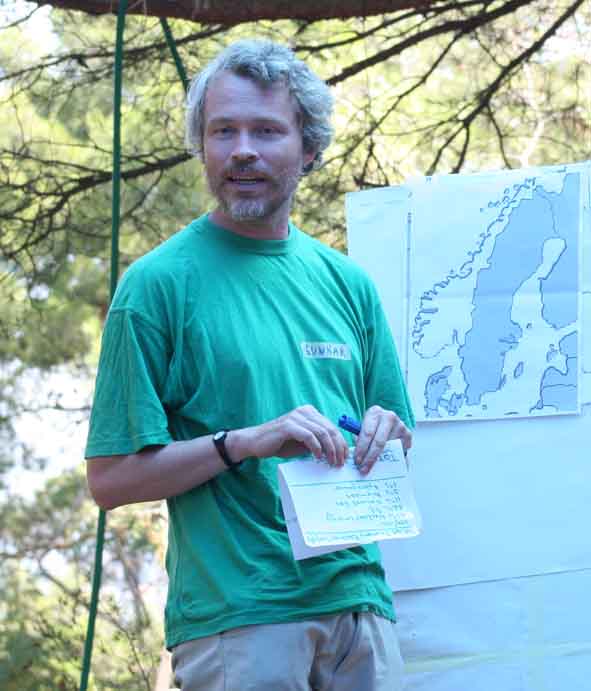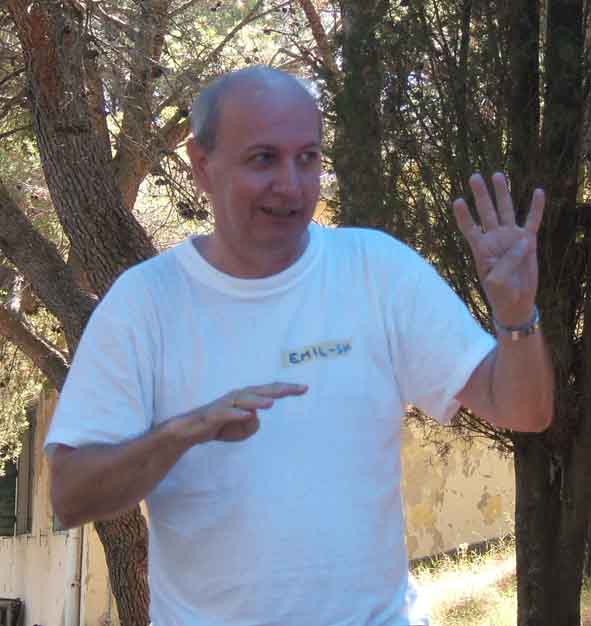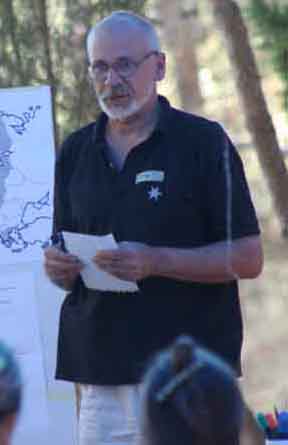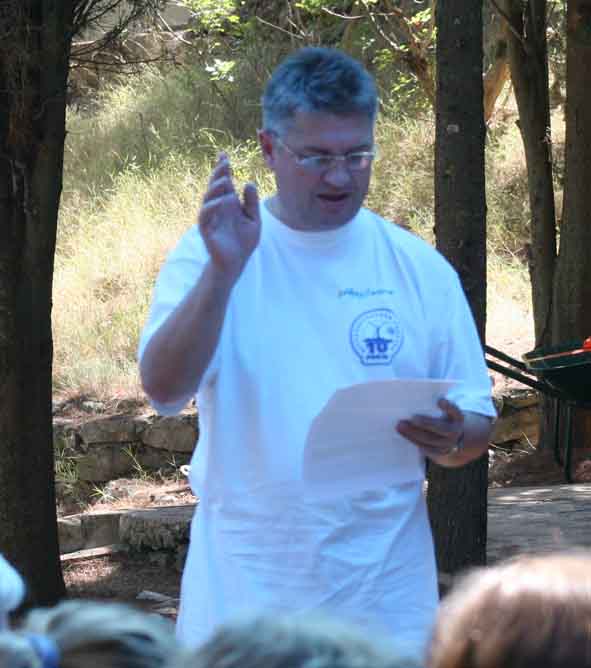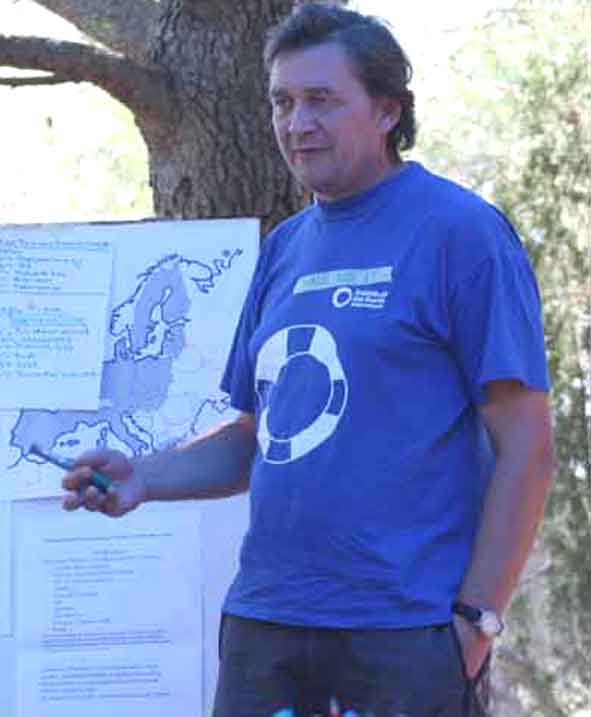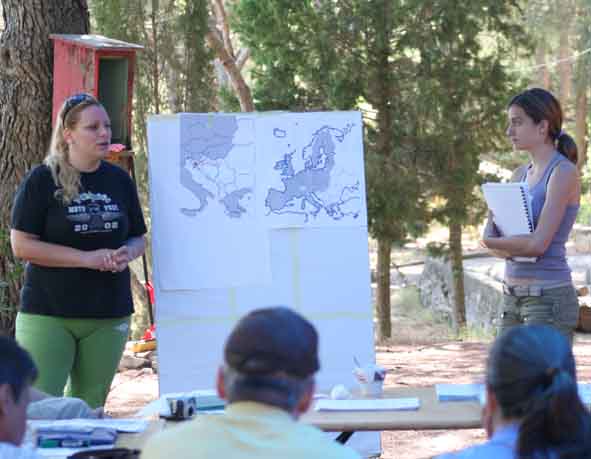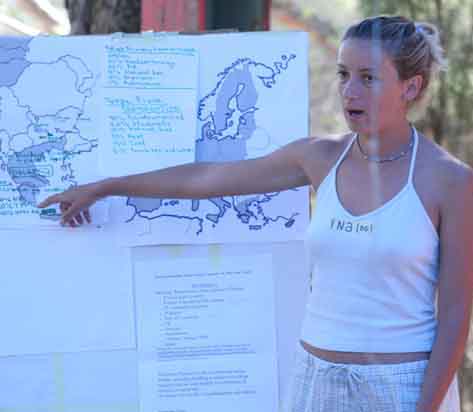| About Us | Contact Us | Member Database | Contact Database | Support Us |
September 3-8, 2006 - Presentations
Pictures
and Presentations (coming soon) |
||
|
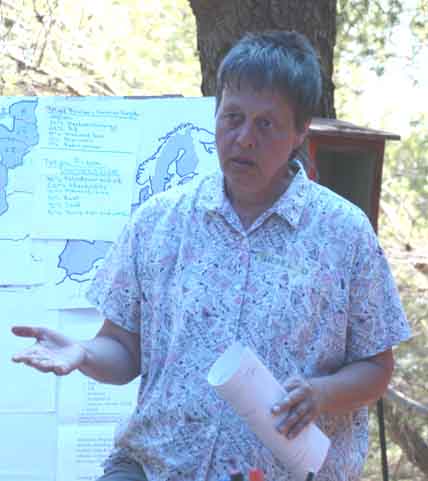 Ursel Beckmann (INFORSE-Europe chair, Wohnhof Braamwish, Germany) |
|
Ion
Zamfir, |
Andrey
Konechenkov |
Saulius
Piksrys |
|
|
|
Benefits and Importance of Environmental Networking in
the Balkans
(Editorial of Sustainable Energy News Nr 54, September
2006)
Sent by
Marija Jankovska, Eco-sense, Macedonia, and Danijela Anastasov,
Association
of Science and Research ”Josif Pancic”, Serbia
The European Sustainable Energy Seminar held on Solta island in Croatia on the 3rd - 8th of September, 2006, was organised by INFORSE-Europe together with Green Action from Croatia.
It gave NGO participants from the whole of Europe a chance to discuss energy topics, to do practical work on renewable-energy sources, and to network with each other in matters pertaining to energy and climate issues. The themes of discussions during the seminar were related to the newly formed European energy market in southeastern Europe; the global oil peak; EU energy and climate policies; EU structural funds; and visions 2050 for Denmark, Ukraine, and Lithuania.
The seminar created a strong basis for further networking of the already existing NGOs and NGO networks in the Balkans in their joint efforts for better energy and climate policies in the region, as well as for more democratic processes in the new South East European regional energy market (SEEREM). Such networking is important for greater involvement of the public in these issues and to increase the credibility of NGOs in their dealings with officials. It helps the exchange of experience among the regional Balkan NGOs and fills in some gaps in their knowledge and skills. The process will lead to stronger NGO influence in the region, e.g., towards reaching goals for ratification of the Kyoto protocol by the countries that still have not done so.
Members of such regional networks can influence the transparency and democratisation of the privatisation and liberalisation processes in the energy sector in South East Europe. Better NGO access to the mechanisms of energy-market transformation in the region as well as NGO influence on future energy policies increase the likelihood that renewable-energy and energy-efficiency solutions will succeed. NGO influence also contributes to positive social perceptions of renewable energy within the energy sector.
In addition to influencing
policies, NGO networking can help to raise public awareness. NGOs working
together can organise simultaneous events throughout the whole region
on chosen topics. One example of such coordinated action is Climate
Change Action day, the 4th of November.
We hope that NGOs will use these opportunities for cooperation. We also believe strongly that only with joint work and mutually supportive efforts can the NGOs from the Balkans reach goals in the fields of energy and environment as well as provide good opposition and advisors to governments.
